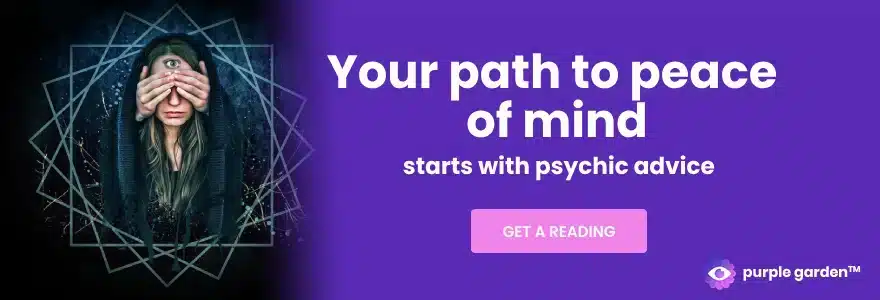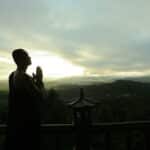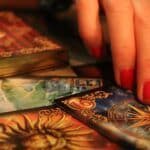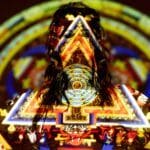Wicca is a nature-centered spiritual practice that’s been sparking curiosity and inspiration across the globe. Sure, you might have heard it associated with spell-casting or nature worship, but there’s so much more under the surface. Think of it as a vibrant mix of beliefs, traditions, and practices that celebrate the natural world and its divine vibes. Whether you’re a seasoned Wiccan, just starting your journey, or simply intrigued, this guide is here to walk you through the basics of this unique spiritual path with warmth and openness. Let’s explore together!
Table of Contents
What is the Origin of Wicca?
Modern Wicca emerged in 1954 when a British civil servant named Gerald Gardner published the book Witchcraft Today. Often referred to as the “father of Wicca,” Gardner introduced the world to his vision of a modern witchcraft movement that combined ancient pagan and indigenous traditions, ceremonial magic, and other pre-Christian beliefs. He wrote about his initiation into a secret coven and established the first contemporary group of practicing witches, the Bricket Wood Coven.
Among his coven members was writer Doreen Valiente, the “mother of modern witchcraft”. Her collaboration with Gardner shaped today’s Wiccan rituals and practices. She wrote or adapted much of their early liturgy. Valiente’s book “Charge of the Goddess” is still central to many Wiccan ceremonies today.
As Wicca gained popularity, especially during the 1960s and 70s counterculture movement, different traditions within Wicca began to emerge, each with its own unique practices.
Is Wicca a Religion?
Yes, Wicca is recognized as a religion in many countries, including the United States, where it gets the same legal protections as other faiths. It’s a spiritual path with its own beliefs, practices, and ethics. Wiccans usually believe in a deity (or deities), participate in regular rituals, and follow a moral code.
What makes Wicca so interesting is its diversity and flexibility. Some Wiccans worship multiple gods and goddesses, while others might center on a duality of deities or adopt a more pantheistic view. Wicca also has leaders like High Priests and High Priestesses, who guide covens or groups in their spiritual practices and rituals. However, many Wiccans enjoy practicing solo, creating their own spiritual path.
Wicca emphasizes personal experience over strict rules. Followers are encouraged to build their own relationship with the divine and nature in a way that suits them. This personal and flexible approach allows people to connect meaningfully with their spirituality, fostering a sense of empowerment and connection.
What are the Core Principles of Wicca?
The core principles of Wicca guide its practices and beliefs. Central to Wicca is the Wiccan Rede: ‘An it harm none, do what ye will,’ which allows for personal freedom as long as it doesn’t harm others. This ethical principle inspires Wiccans to act with compassion and respect, providing a guiding light in their spiritual journey. Another key principle is the Law of Threefold Return, which suggests that whatever energy you send out—positive or negative—will return to you threefold.
Wiccans believe in the interconnectedness of all things, fostering deep respect for nature and all living beings. Personal gnosis, or direct spiritual experience, is also vital in Wicca. This concept encourages Wiccans to connect directly with the divine without intermediaries, emphasizing the importance of personal experience and intuition in spiritual growth. Wicca values the balance of energies, often symbolized by the divine feminine and masculine, and sees magic as a natural force to create change through rituals and intention. Celebrating the cycle of the seasons, or the Wheel of the Year, is another important aspect, emphasizing the cyclical nature of life and the need to live in harmony with these rhythms. These principles serve as flexible guidelines, promoting growth, ethical behavior, and a deep connection with nature.
What Do Wicca Followers Believe in?
Wicca is a diverse spiritual path, so beliefs can vary among practitioners, but there are some common themes. Most Wiccans believe in a deity, though their views differ—some are polytheistic, others focus on a duality of deities (the God and Goddess), and some take a pantheistic view, seeing the divine in all things. Nature is central to Wicca, with the natural world viewed as sacred and deserving of respect and protection. Magic is another key belief, seen as a natural force that can be harnessed through rituals and intention, with an understanding that everything is interconnected by energy.
Wiccans often believe in concepts like reincarnation and karma and use symbols, herbs, crystals, and other natural objects in their practices for their specific energetic properties. Personal responsibility is crucial in Wicca, emphasizing accountability for one’s actions without traditional concepts of sin or salvation. Many Wiccans also believe in spirit guides, ancestors, and other non-physical beings that provide guidance and support. Ritual and celebration play significant roles, helping practitioners connect with deities, work magic, and honor the cycles of the seasons. Wicca encourages personal exploration, allowing practitioners to find their unique way of communicating with the divine.
What are Wicca’s Basic Sacred Customs?
Wicca’s basic sacred customs form the foundation of its spiritual practice. Key rituals involve creating a sacred circle and using tools like athames, wands, and chalices to direct energy and represent the elements. Spell-casting is another important custom, where spells are viewed as focused prayers or intentions, often paired with ritual actions. Celebrating the Wheel of the Year is central, with eight Sabbats marking the changing seasons, and Esbats, rituals held at the full moon. Divination, herbalism, and working with the elements are also standard practices, and many Wiccans keep a Book of Shadows as a personal spiritual diary.
These customs are not rigid rules but flexible guidelines that encourage creativity and personal expression in spiritual practice. Wiccans often incorporate meditation, energy work, and other practices into their routines, making their spiritual journey uniquely personal.
Major Wicca Holidays
Wiccans celebrate eight major holidays throughout the year, known as sabbats. These festivals form what’s called the Wheel of the Year, marking the changing seasons and the ongoing cycle of birth, death, and rebirth.
- Samhain (October 31st): Often considered the Wiccan New Year, Samhain is a time to honor ancestors and loved ones who have passed away. It’s a deeply reflective holiday, often associated with thinning the veil between the physical and spiritual worlds.
- Yule (around December 21st): Celebrated at the winter solstice, Yule marks the sun's rebirth. This is a time of celebration and renewal, with themes of light returning after the darkest night.
- Imbolc (February 1st or 2nd): Imbolc celebrates the first stirrings of spring. It’s a time to welcome the returning light and prepare for the growth and renewal of the season.
- Ostara (around March 20th or 21st): Also known as the Spring Equinox, Ostara celebrates the balance of light and dark, as day and night are equal in length. It’s a time of growth, fertility, and new beginnings.
- Beltane (May 1st): Beltane is a joyous celebration of life, love, and fertility. It’s traditionally marked by activities like dancing around the maypole and lighting bonfires to honor the sun's life-giving power.
- Litha (around June 20th or 21st): Celebrated at the summer solstice, Litha honors the sun at the height of its power. It’s a time of abundance, energy, and the celebration of life.
- Lughnasadh (August 1st): Also known as Lammas, Lughnasadh is the first of the harvest festivals. It’s a time to give thanks for the earth's abundance and prepare for the coming autumn.
- Mabon (around September 20th or 21st): The autumn equinox; Mabon is the second harvest festival, a time of balance and reflection as day and night are once again equal.
How these holidays are celebrated can vary widely among Wiccans, depending on their personal preferences and traditions. The key is to find ways to connect with nature’s cycles in a way that feels meaningful to you.
Can Following Wicca Be Dangerous?
Can following Wicca be dangerous? The short answer is no, as long as it’s practiced responsibly. Wicca is guided by the principle of “An it harm none, do what ye will,” which emphasizes avoiding harm. However, like any spiritual path, Wicca can be misunderstood or misused. It’s essential to stay grounded, recognize the importance of personal responsibility, and be cautious of unethical individuals who might take advantage of those new to the practice.
While rituals and spell work can be powerful tools for personal growth, they are not substitutes for professional mental health care. It’s also important to be mindful of your surroundings, as being open about practicing Wicca can sometimes lead to misunderstanding or discrimination. Practically, ensure that rituals involving candles, incense, or outdoor activities are conducted safely, and watch out for spiritual burnout—remember, spiritual growth is a journey, not a race.
Conclusion
We’ve explored the essentials of Wicca, from its origins and core beliefs to its sacred customs and holidays. At its core, Wicca is a nature-based spiritual path emphasizing personal responsibility, ethical living, and a deep connection with the natural world.
Wicca’s strength lies in its flexibility. It’s not a rigid religion but a personal journey that evolves with each practitioner. Whether you’re a dedicated Wiccan or just curious, there’s value in Wicca’s focus on personal growth, respect for nature, and celebrating life’s cycles.
Ultimately, the real magic in Wicca isn’t just in rituals or spells but in how we live our lives. It’s in the kindness we extend, the respect we show for nature, and the love we carry. This approach to life is something anyone can embrace, regardless of their spiritual path.
Wicca offers a way to reconnect with nature and find balance in a world that often feels out of tune. It encourages a deeply personal and meaningful exploration of spirituality, helping us lead more harmonious lives.











